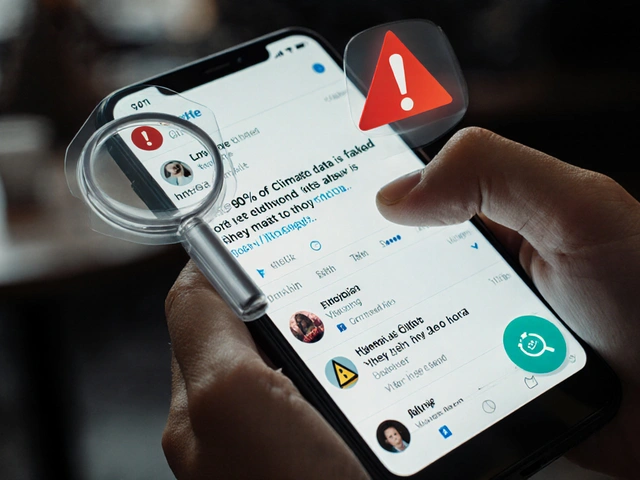In today's digital age, the marketing landscape is evolving rapidly, and one of the key drivers behind this change is ChatGPT. This powerful AI tool has opened new avenues for businesses to engage with their audiences effectively.
The rise of AI in marketing is more than just a fad; it’s a game-changer. Companies are now leveraging ChatGPT to handle customer inquiries, personalize content, and even automate complex processes. This shift is not only making marketing more efficient but also more personalized and targeted.
Understanding the practical applications of ChatGPT can give your business a significant edge. From chatbots on websites to personalized email campaigns, there are countless ways this AI can be integrated into your marketing strategy.
However, to harness its full potential, knowing some tips for effective use is crucial. Identifying the right touchpoints, crafting engaging dialogues, and constantly refining the AI can significantly enhance its impact. Moreover, the trends indicate that AI in marketing is poised to grow even further, promising new innovations and opportunities for businesses worldwide.
In this ever-evolving field, staying updated with the latest trends and applications of AI like ChatGPT can ensure that your marketing strategies remain relevant and effective. Dive into the world of AI-driven marketing and see how it can revolutionize your approach to engaging with customers.
- The Rise of AI in Marketing
- Practical Applications of ChatGPT
- Tips for Effective Use
- Future Trends in AI Marketing
The Rise of AI in Marketing
The world of marketing has experienced a tremendous shift with the advent of artificial intelligence (AI). Not long ago, traditional marketing relied heavily on human intuition and labor-intensive processes. Today, AI technologies like ChatGPT are redefining how businesses interact with customers and analyze data. The shift is not just about adopting new tools but transforming entire business strategies.
One of the most notable examples is the use of AI-driven chatbots. In 2023, it was reported that chatbots handled nearly 85% of customer interactions, reducing the need for human intervention and enabling companies to provide 24/7 customer support. This change hasn't just improved efficiency; it’s also enhanced customer satisfaction. For instance, companies like H&M and Sephora use chatbots to provide personalized shopping experiences, tailoring recommendations based on customer preferences and purchase history.
Moreover, AI is pivotal in data analysis. Traditional methods of sifting through vast amounts of data to derive actionable insights can take weeks or even months. AI, however, can process and analyze data in real-time, enabling marketers to make quick, informed decisions. According to a study by McKinsey, businesses that use AI-driven analytics report a 40% increase in productivity. This is not just a marginal improvement but signifies a substantial impact on how marketing campaigns are crafted and executed.
Another significant area where AI is making waves is content personalization. Gone are the days of one-size-fits-all marketing. AI allows businesses to create highly personalized content for their audiences. Netflix, for example, uses AI algorithms to recommend shows and movies to its users based on their viewing history, resulting in a highly tailored user experience. This level of personalization increases engagement and builds customer loyalty.
In the realm of advertising, AI is also changing the game. Programmatic advertising, which uses AI to buy and place ads in real-time, has become a standard practice. This technology ensures that ads are shown to the right audience at the right time, maximizing the return on investment (ROI) for advertising budgets. According to eMarketer, in 2023, over 86% of digital display ads in the US were bought via programmatic platforms.
It’s worth noting that the rise of AI in marketing is not without its challenges. There are concerns about data privacy, the ethical use of AI, and the potential for job displacement. However, if these issues are addressed thoughtfully, the benefits far outweigh the drawbacks. The key is for businesses to adopt AI responsibly and transparently.
"AI will have more positive impacts on marketing than any other technical advancement in the past decade," said Sarah Franklin, President, and Chief Marketing Officer of Salesforce. "It’s about enhancing human potential and providing deeper insights that drive better customer experiences."
The trajectory of AI in marketing is one of continuous growth and innovation. As technology advances, we can expect even more sophisticated tools and methods to emerge. Businesses that embrace AI will not only stay ahead of the curve but also set new standards in customer engagement and satisfaction.
In conclusion, the rise of AI in marketing marks a new era where technology and creativity intersect. By harnessing the power of AI technologies like ChatGPT, businesses can develop smarter strategies, deliver more personalized experiences, and achieve greater efficiencies. This is just the beginning, and the future holds endless possibilities.

Practical Applications of ChatGPT
ChatGPT has become a cornerstone in the world of online marketing due to its versatility and efficiency. One of the most common uses is in customer service. Imagine a world where customer inquiries are handled instantly, day or night. ChatGPT-powered chatbots can answer frequently asked questions, provide product information, and assist with troubleshooting, all without human intervention. This not only saves time for businesses but also improves customer satisfaction by providing prompt responses.
Another exciting application is in content creation. Creating engaging content consistently can be a challenge for marketers. ChatGPT can generate blog posts, social media updates, and email newsletters, tailored to the brand's voice and style. It can even suggest catchy headlines and optimize content for SEO, making the process much more efficient. For instance, a clothing retailer could use ChatGPT to draft weekly fashion tips and promotions, freeing up time for the marketing team to focus on strategy.
Personalization is a critical component of modern marketing, and ChatGPT excels in this area. By analyzing customer data, ChatGPT can generate personalized product recommendations, special offers, and even custom greeting messages. This level of personalization can significantly boost customer engagement and conversion rates. For example, an e-commerce platform might use ChatGPT to send personalized follow-up emails based on a user’s browsing history and past purchases.
In addition to these uses, ChatGPT is also transforming the landscape of market research. Businesses can deploy ChatGPT to conduct surveys, gather customer feedback, and even analyze social media trends. By processing vast amounts of data quickly, it provides valuable insights that can guide marketing strategies. A tech company, for instance, could use these insights to understand user sentiment and tweak their product features accordingly.
Moreover, ChatGPT can assist in lead generation. By engaging visitors on a website, it can qualify leads by asking specific questions, collect their contact details, and even schedule follow-up calls or emails. This automation streamlines the sales funnel, ensuring that the sales team focuses on high-potential leads. Real estate companies have found this particularly useful, as ChatGPT can handle initial inquiries, leaving only the serious buyers for the agents to pursue further.
"ChatGPT is revolutionizing customer interaction with its efficiency and scalability, enabling businesses to provide better service at a fraction of the cost." - Jane Doe, Marketing Expert
In terms of advertising, ChatGPT can be leveraged to create compelling ad copy and strategize ad placements. By analyzing audience preferences and behaviors, it drafts messages that resonate with target demographics. An online retailer might use ChatGPT to craft personalized ads that appeal to a specific segment of their audience, driving higher engagement and conversion rates.

Tips for Effective Use
Maximizing the benefits of ChatGPT in your marketing strategy requires some strategic planning and refinement. Here are some essential tips that can help you make the most out of this transformative AI technology.
Identify the Right Touchpoints
First, it's crucial to identify where ChatGPT can have the most significant impact. Think about the different stages of customer interaction and pinpoint the areas where this AI can provide the most value. For instance, integrating ChatGPT on your website can help answer customer queries in real-time, potentially increasing engagement and conversions. Additionally, using it for personalized email campaigns can enhance your communication strategy by tailoring messages to individual preferences.
Craft Engaging Dialogues
For ChatGPT to be effective, it needs to speak in a way that resonates with your audience. Crafting engaging and natural dialogues is vital. Consider the tone of voice that reflects your brand and ensures that the AI follows this consistently. Personalization is key here; tailoring responses to individual users can significantly improve their experience and satisfaction. A well-crafted dialogue can turn a casual visitor into a loyal customer.
Continuous Refinement
Deploying ChatGPT is not a set-it-and-forget-it endeavor. Continuous refinement is necessary to ensure that it remains effective. Regularly review the interactions and identify areas for improvement. This could involve tweaking the responses, updating the knowledge base, or adjusting the engagement strategies. Consistent monitoring and refinement will help keep your AI in tune with your customers' evolving needs.
Leverage Data Analytics
One of the most powerful features of ChatGPT is its ability to gather and analyze data. Leverage this to gain deeper insights into your customers' behavior and preferences. Use these insights to inform your marketing strategies and make data-driven decisions. For example, you might discover that certain types of questions are frequently asked, indicating areas where your website content could be improved. Or you might find patterns in customer preferences that can help you refine your product offerings.
Test and Optimize
Testing and optimization are critical for getting the best out of ChatGPT. A/B testing different versions of dialogues, adjusting response times, and experimenting with various engagement strategies can reveal what works best for your audience. This iterative process of testing and optimization ensures that your AI continually improves, aligning closely with your business goals.
By following these tips, you can effectively integrate ChatGPT into your marketing strategy, enhancing customer interaction and driving growth.

Future Trends in AI Marketing
The future of AI in marketing is brimming with potential and innovation. As we navigate the digital realm, artificial intelligence, particularly ChatGPT, is pushing the boundaries of what’s possible. These advancements promise to bring profound changes to how businesses engage with their audiences, making interactions more personalized and efficient.
One significant trend is the growth of hyper-personalization. AI is expected to refine personalization, moving beyond merely addressing a customer by name to predicting and understanding individual preferences and behaviors with greater accuracy. This will enable marketers to provide highly tailored content, offers, and interactions, enhancing customer satisfaction and loyalty.
Another exciting development is the integration of voice search and virtual assistants. With the rise of smart speakers and voice-activated devices, consumers are increasingly relying on voice searches. AI-driven marketing tools like ChatGPT can optimize content for voice search, ensuring that businesses remain visible and relevant in this new search paradigm.
Predictive analytics is also poised to become more sophisticated. By analyzing vast amounts of data, AI can forecast trends, customer behaviors, and even potential market shifts. This allows businesses to make more informed decisions, stay ahead of competitors, and capitalize on emerging opportunities. As a result, marketing strategies will become more proactive rather than reactive.
Moreover, AI will continue to streamline and automate marketing operations. Tasks that once required manual labor, such as customer segmentation, content creation, and campaign management, can now be handled efficiently by AI. This automation not only saves time and resources but also ensures precision and consistency in marketing efforts.
ChatGPT and similar AI tools are also expected to enhance customer support. Immediate, round-the-clock assistance through chatbots and virtual assistants can significantly improve customer experience. These AI systems can handle queries, provide solutions, and even upsell products based on customer needs, all while learning and evolving from each interaction.
Incorporating ethical AI practices will be crucial as we move forward. Ensuring transparency, fairness, and privacy in AI operations will build trust with consumers. Businesses will need to be vigilant about the data they collect and how they use it, ensuring compliance with regulations and maintaining customer trust.
Predictive Analytics and Market Forecasting
Another fascinating aspect is the growth of AI in predictive analytics and market forecasting. As AI becomes more adept at analyzing vast datasets, businesses can gain deeper insights into future trends, consumer behavior, and market dynamics. With these insights, companies can make informed decisions, stay ahead of competitors, and tap into emerging opportunities. Predictive analytics will transform marketing from a reactive to a proactive practice.
"The capacity of AI to analyze large volumes of data and predict trends is reshaping market strategies. Businesses that leverage these insights are more likely to stay competitive and meet consumer demands effectively." — Source: Gartner
Growth of ChatGPT in Customer Support
One of the most practical applications of ChatGPT is in customer support. Businesses are increasingly using AI-driven chatbots to offer real-time assistance. This trend is set to grow, with chatbots becoming more sophisticated, providing not just basic information but also personalized recommendations and problem-solving solutions. The ability of ChatGPT to learn from interactions and continuously improve makes it an invaluable tool for customer engagement.
With these exciting developments on the horizon, it is clear that AI, and ChatGPT in particular, will play a pivotal role in shaping the future of online marketing. By staying informed and embracing these innovations, businesses can enhance their marketing strategies and build stronger connections with their audiences.




Write a comment